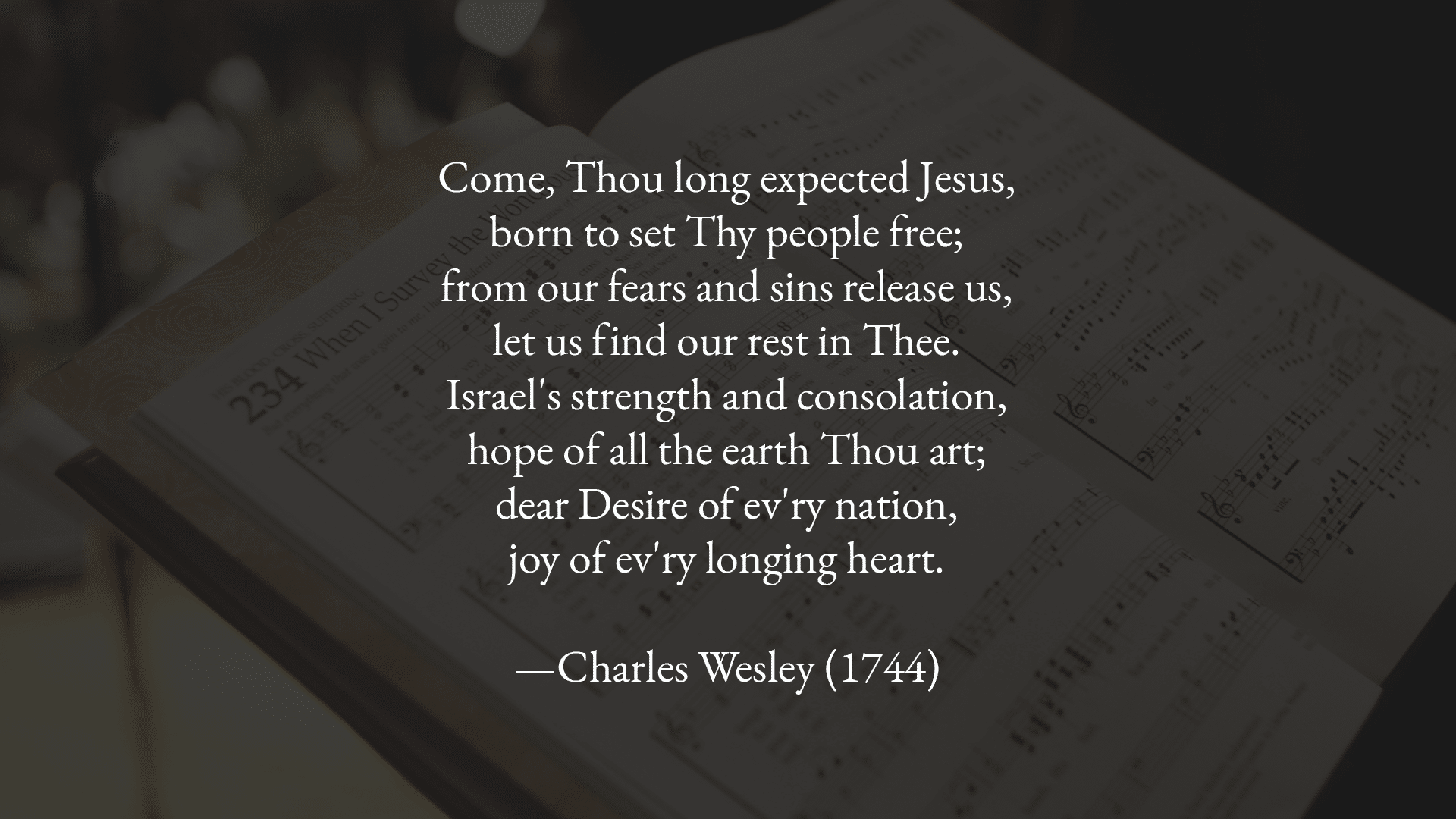I suspect that “Come, Thou Long-Expected Jesus” is, by virtue of its title, often categorized with hymns such as “O Come, O Come, Emmanuel” in early Advent as being from the perspective of an Old Testament saint waiting in anticipation for the coming of Messiah. If we had nothing but the title of the hymn to go by, this might be a good categorization, suggested by the plea “Come!” and the adjective “long-expected.” But take a closer look at the stanzas:
Come, Thou long-expected Jesus, Born to set Thy people free;
From our fears and sins release us, Let us find our rest in Thee.
Israel’s Strength and Consolation, Hope of all the earth Thou art;
Dear Desire of every nation, Joy of every longing heart.Born Thy people to deliver, Born a child and yet a King,
Born to reign in us forever, Now Thy gracious kingdom bring.
By Thine own eternal Spirit Rule in all our hearts alone;
By Thine all sufficient merit, Raise us to Thy glorious throne.
Notice that Jesus is not only described as “long-expected,” but also as “born to set thy people free” — past tense! “Come” in the first stanza’s first line actually connects grammatically with the verb “release”1This is more evident in the original punctuation of Wesley’s text. Today’s hymnals tend to put a semicolon after “Born to set thy people free”, but in the original text (look at hymn X in … Continue reading to give us “Come [and] release us from our fears and sins.”
One of the themes running through this short hymn is that Christ was born for the Gentiles as well as the Jews. Indeed, this notion opens the hymn: “Come, thou long-expected Jesus, born to set thy people free, from our fears and sins release us, let us find our rest in thee.” That “thy people” is contrasted (not equated) with “us” is made clear with the expansion evident in the second half of the first stanza: “Israel’s Strength and Consolation, [but what is more,] Hope of all the earth Thou art, Dear Desire of every nation, Joy of every longing heart.”
References
| 1 | This is more evident in the original punctuation of Wesley’s text. Today’s hymnals tend to put a semicolon after “Born to set thy people free”, but in the original text (look at hymn X in Wesley’s A collection of hymns for the nativity of our Lord), there is a comma. |
|---|




